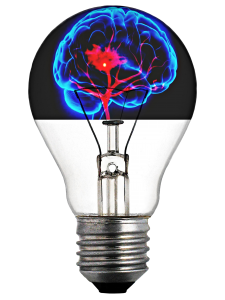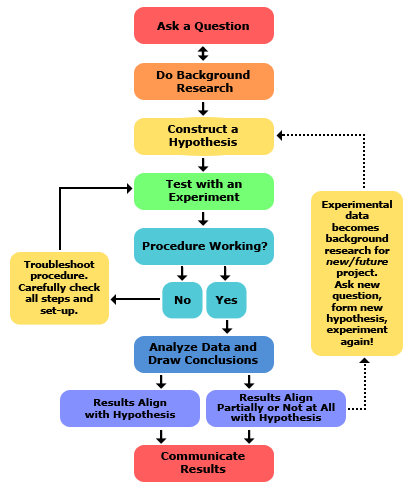Edie Weiner, a futurist, once said, “Complexity is the future.” In her TEDx talk, she talks about how our old worlds and new worlds are colliding. In the old world children grew up with minimal stimulus, but in the modern world children have toys in every room, feedback from everything they touch, and they even have computers for tots. When they hit the age of 7, they are taken from this world with multiple stimuli and throw them into the same types of educational environment that our grandparent’s grew up in. It’s a recipe for disaster with the label ADHD.
These young minds are growing differently. The future world will be complex because of my generation combined with future generation that is able to embrace the complexity that we were given as we grew up. In this future we create, our success will be determined by our “complexipacity”.
What is complexipacity, you ask?
 Complexipacity is a term coined by another futurist and strategic forecaster, David Pearce Snyder. This phrase is used to describe an individual’s or organisation’s threshold for comprehend and take up complex scenarios. This includes: complex ideas, systems, problems, situations, interactions, or relationships. The complexipacity grows with maturity and experience, but may decrease later in life as we “settle in our ways.”
Complexipacity is a term coined by another futurist and strategic forecaster, David Pearce Snyder. This phrase is used to describe an individual’s or organisation’s threshold for comprehend and take up complex scenarios. This includes: complex ideas, systems, problems, situations, interactions, or relationships. The complexipacity grows with maturity and experience, but may decrease later in life as we “settle in our ways.”
While complexipacity is a rather odd word made by smashing complex and capacity together, it opens up a lot of doors to imagination and flexibility on how one might foster it in their lives. It is a character trait that grows with us, enabling us to shade our lives with the simple and the complex as they intertwine throughout our lives while understanding the feedback loops of one to the other. While humans develop levels of critical analysis on their own through experience, it’s a slow process that only scratches the surface of what we are capable of.
We develop complexipacity naturally with experience.
Early on we beg our parents, “Why can’t I eat gummy worms for breakfast?!” Later, we learn that it hurts our stomach when we eat handfuls of them at a time. A feedback loop is recognised.
Then, we might yell petulantly, “Why can’t I stay out past 2300?!” Only to realise later that it can make the next day impossible at school. Feedback recognised, and we apply it to not losing our jobs later in life.
This is the complexity that forms naturally through life with trial and error, success and failure. Complexipacity is the core to many areas of life: avoiding traffic accidents, handling disputes of a customer, inventing rocketry that would take man beyond the moon, running a cozy company that sells chocolates. With this trait, a person can navigate a variety of situations through layers of elaboration with confidence.
Accidents happen, but imagine the growth you could give yourself and your children if you were to work on this superpower with purpose? You’d think with all that it could do for you, your complexipacity would be difficult to purposefully grow and hone.
Happily and truthfully, not in the least.
Basic science and little something called metacognition is all you need.
Metacognition is often defined as the thinking we do about thinking. I like to think of it as that inner 4-year-old asking “why” over and over again. Why can’t I have chocolate cake for breakfast? Why is it bad for my health? Why does the body need nutrients? Why… why…. why.
But, it’s also the adult telling the inner 4-year-old great answers, not just “because I said so.” Try this simple exercise to enhance your own metacognition:
While you read this article ask yourself, “What do I intend to get out of this?” Then, as you read, look for those specific points that will help you obtain that specific goal.
What you are doing in that moment is triggering your brain to start thinking about this particular article in a critical fashion. You look for what you want and make a decision on whether or not the article gives it to you. This is easy to help your child do as well, with just a slight tweak.
The next time your child expresses interest in something, ask them to explain why they like it.
The simple act of reflecting on things enhances your metacognition. It works because every time you reflect on a thought, activity, fact you read, plan you have, or anything else you are lighting up parts of the brain to think a little more deeply about a topic and how it interrelates to a bigger picture within your world.
Of course, there is a more structured way to do this as well.
 And that way is to use the scientific method in more things in your life. At first glance you might think that the scientific method relates only to the lab. But, you don’t need a white lab coat to ask a question.
And that way is to use the scientific method in more things in your life. At first glance you might think that the scientific method relates only to the lab. But, you don’t need a white lab coat to ask a question.
Seriously. What was the last question you asked yourself? (Besides this one.)
For me, it was this morning as I stood lamely next to the treadmill: “Why is my music app not working?”
In this case, that’s the question. The background research is a quick scan of things you know well and not so well. Power on? Check. App open? Check. Volume on? Check. Select a song and hit play? …. Whoops.
Hypothesis: I need to select something and hit play.
Experiment: Select something and hit play.
Procedure working? Yes.
We do this quickly and sometimes without thinking when we are experienced with the task at hand. So to train for more complex scenarios, experience more, ask more questions, and search for the answers.
Break questions down into a myriad of questions. Add different perspectives on it and seek out the answers from those perspectives. Armed with this, you’ve got a recipe for purposefully honing complexipacity.

Really great article and posed problems I hadn’t heard of before. (The new generation with all the stimuli being educated in such an old-school way) As an educator, that’s where my focus stayed. Hmmmm. Thanks for sharing at Homeschool Memos Linky Party!